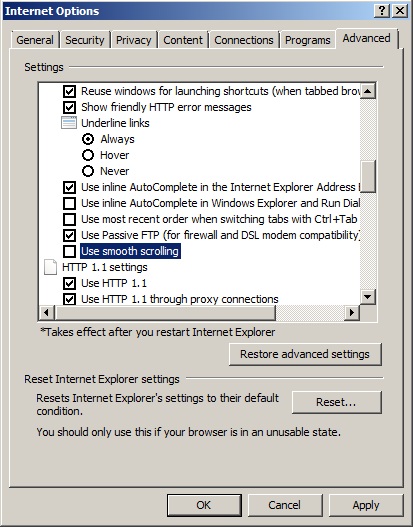Ntfs.sys – Pre Service Pack 3 Revision History for Windows Server 2008 SP2, Windows Vista SP2 and Windows Small Business Server 2008 (SBS 2008)
04-Apr-2012 – 6.0.6002.22833 – Ntfs.sys – x86/x64 – http://support.microsoft.com/kb/2698155 – An application does not read or access a file correctly in Windows Server 2008 R2, Windows Server 2008, Windows 7, or Windows Vista
03-Mar-2013 – 6.0.6002.23070 – Ntfs.sys – x86/x64 – http://support.microsoft.com/kb/2840149 – MS13-036: Description of the security update for the Windows file system kernel-mode driver (ntfs.sys): April 9, 2013
03-Mar-2013 – 6.0.6002.18799 – Ntfs.sys – x86/x64 – http://support.microsoft.com/kb/2840149 – MS13-036: Description of the security update for the Windows file system kernel-mode driver (ntfs.sys): April 9, 2013
05-Apr-2012 – 6.0.6002.22833 – Ntfs.sys – x86/x64 – http://support.microsoft.com/kb/2698155 – On-demand antivirus scans do not work as expected in Windows Vista, in Windows 7, in Windows Server 2008, or in Windows Server 2008 R2
05-Mar-2012 – 6.0.6002.22811 – Ntfs.sys – x86/x64 – http://support.microsoft.com/kb/967351 – A heavily fragmented file in an NTFS volume may not grow beyond a certain size
27-Feb-2012 – 6.0.6002.22804 – Ntfs.sys – x86/x64 – http://support.microsoft.com/kb/2673320 – Computer stops responding when you perform a file operation on a directory in Windows Vista SP2 or in Windows Server 2008 SP2
24-May-2011 – 6.0.6002.22650 – Ntfs.sys – x86/x64 – http://support.microsoft.com/kb/2550862 – FSExtend tool fails to extend a LUN in Windows Server 2008
28-Apr-2011 – 6.0.6002.22632 – Ntfs.sys – x86/x64 – http://support.microsoft.com/kb/2535094 – Server stops responding when you lock or unlock files on a network by using the SMB2 protocol in Windows Vista or in Windows Server 2008
18-Mar-2011 – 6.0.6002.22616 – Ntfs.sys – x86/x64 – http://support.microsoft.com/kb/2525064 – Ntfs.sys driver takes a long time to mount a large volume in Windows Vista or in Windows Server 2008
10-Dec-2010 – 6.0.6002.22544 – Ntfs.sys – x86/x64 – http://support.microsoft.com/kb/2471430 – You cannot restore large files in the NTFS file system when all the data streams that have sparse attributes are deleted in Windows Server 2008 or in Windows Vista
13-Sep-2010 – 6.0.6002.22486 – Ntfs.sys – x86/x64 – http://support.microsoft.com/kb/980382 – The computer stops responding when you rename a folder in Windows Server 2008, in Windows Vista, in Windows 7 and in Windows Server 2008 R2
07-Jul-2010 – 6.0.6002.22441 – Ntfs.sys – x86/x64 – http://support.microsoft.com/kb/981891 – Disk Manager reports incorrect disk usage a while after the operating system starts in Windows Server 2008 or in Windows Vista
19-Mar-2010 – 6.0.6002.22368 – Ntfs.sys – x86/x64 – http://support.microsoft.com/kb/981166 – Some data is corrupted when cached and noncached I/O operations occur by using the same NTFS file handle
11-Mar-2010 – 6.0.6002.22360 – Ntfs.sys – x86/x64 – http://support.microsoft.com/kb/976538 – File corruption may occur if you run a program that uses a file system filter driver in Windows 7, Windows Server 2008 R2, Windows Vista, or Windows Server 2008
08-Dec-2009 – 6.0.6002.22283 – Ntfs.sys – x86/x64 – http://support.microsoft.com/kb/977675 – A computer that is running Windows Vista or Windows Server 2008 stops responding at a black screen early in the startup process
14-Oct-2009 – 6.0.6002.22245 – Ntfs.sys – x86/x64 – http://support.microsoft.com/kb/975663 – Stop error message on a computer that is running Windows Server 2008 SP2 or Windows Vista SP2: “0x00000024 NTFS_FILE_SYSTEM”
17-Aug-2009 – 6.0.6002.22201 – Ntfs.sys – x86/x64 – http://support.microsoft.com/kb/974646/EN-US – A computer that is running Windows Server 2008 SP2 or Windows Vista SP2 stops responding when an application uses the NTFS sparse files
14-Aug-2009 – 6.0.6002.22200 – Ntfs.sys – x86/x64 – http://support.microsoft.com/kb/974127 – An ERROR_ACCESS_DENIED error is returned in Windows Server 2003, in Windows Vista, or in Windows Server 2008 when you call the DeviceIoControl function together with the FSCTL_LOCK_VOLUME control code
15-Jun-2009 – 6.0.6002.22152 – Ntfs.sys – x86/x64 – http://support.microsoft.com/kb/972135 – Backups fail and Event ID 12293 is logged on a computer that is running Windows Vista or Windows Server 2008
19-May-2009 – 6.0.6002.22138 – Ntfs.sys – x86/x64 – http://support.microsoft.com/kb/971279 – The first attempt to eject a removable cartridge disk drive fails on a computer that is running Windows Vista or Windows Server 2008
18-May-2009 – 6.0.6002.22138 – Ntfs.sys – x86/x64 – http://support.microsoft.com/kb/965497 – You receive the Stop error 0x00000050 and then the computer restarts automatically if the OpenFileById function opens a folder and then the handle returned is used to rename files on a computer that is running Windows Server 2008 or Windows Vista
